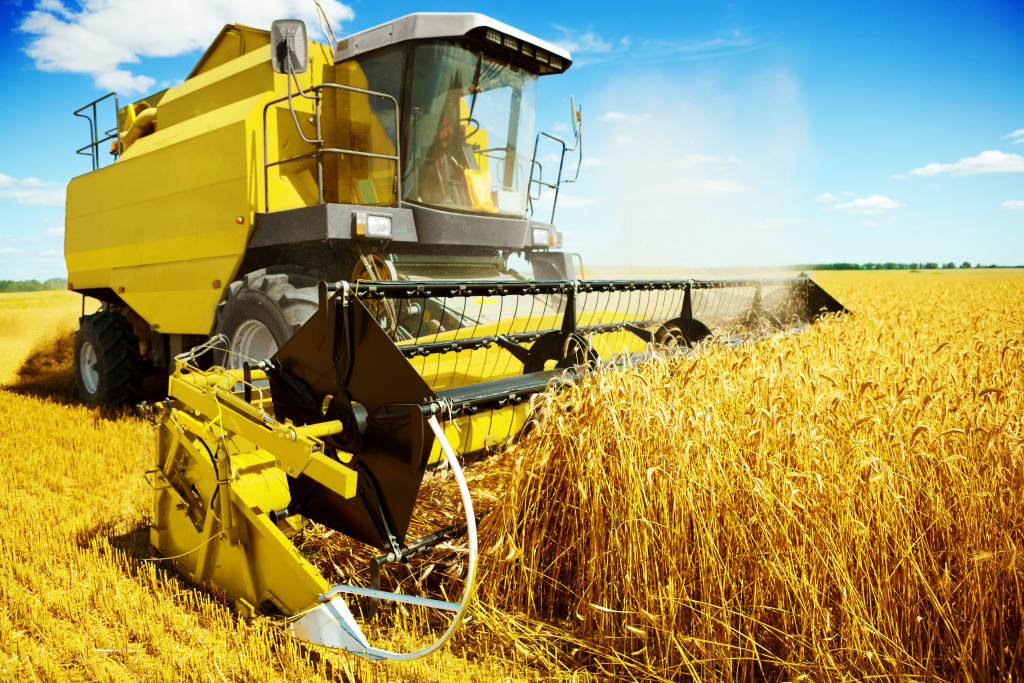- Small farms with less than $250,000 in annual sales account for 75% of all U.S. farms.
- Acquiring business capital, obtaining farm equipment and tools, and implementing effective marketing strategies are critical factors in starting a small farm.
- Business capital can be obtained through traditional loans, grants, crowdfunding, or cooperative financing.
- The right equipment and tools can streamline farming operations, prevent accidents and injuries, and improve product quality.
- Investing in marketing through farmers’ markets, food festivals, and social media can attract customers and increase revenue.
Starting a small farm can be a profitable business venture with several factors contributing to its success. According to a report by the United States Department of Agriculture (USDA), the demand for such farms has been increasing, particularly in urban areas where people are looking for fresh, locally grown produce. The report also states that small farms with annual gross sales of $250,000 or less account for 75% of all U.S. farms.
Small farms have several advantages over their larger counterparts. One such benefit is that they can be operated with lower overhead and fewer resources, making them more cost-effective. Additionally, small farms can focus on producing high-quality products tailored to local markets, which can increase demand and profitability.
However, starting a small farm is no easy feat. It will take a lot of resources before you can begin operations, with these being among the top priorities.
Business Capital

The importance of business capital for a small farm cannot be overstated. It is one of the most critical elements in ensuring the success of your agricultural venture. Having the right capital can help you secure the necessary resources and tools to start and maintain your farm and provide a financial cushion during difficult times.
There are several ways you can acquire business capital for your small farm. Here are four to consider:
Traditional Loans
A loan from a traditional bank or lending institution is one of the most popular ways to secure business capital. You must provide a solid business plan, collateral, and a personal guarantee to back your loan. Interest rates and repayment terms will vary based on your credit score and financial history. You can also get agricultural loans to ensure you get rates suited for your operations’ time for profit.
Grants
There are many government and private grants available specifically for small farmers. These grants can help cover everything from equipment purchases to operational expenses. Some even provide funding for research and development of new products. However, annuities often have strict eligibility requirements and a competitive application process.
Crowdfunding
Crowdfunding platforms like Kickstarter and GoFundMe have proven successful for many small farmers. These platforms allow you to pitch your business idea to potential backers who can invest in your farm in exchange for rewards such as produce, farm tours, or merchandise. You must create a compelling campaign and have a solid social media presence to crowdfund capital successfully.
Cooperative Financing
Cooperative financing is where multiple farmers pool their resources to secure funding. This method can provide access to more significant sums of capital than an individual farmer can secure alone. Cooperative financing can range from informal groups with shared resources to more formal co-ops with defined ownership structures.
Farm Equipment and Tools

Aside from securing business capital, another critical factor in starting a small farm has the right equipment and tools. This includes tractors, tillers, irrigation systems, and small things like hand tools and gardening gloves. These tools are necessary for planting, harvesting, and maintaining crops and animals.
The right equipment and tools can streamline farming operations and reduce labor costs. For example, using a tractor to till the soil can save time and energy compared to manual tilling. An irrigation system can also provide water to your crops more efficiently, especially during dry spells. This saves time and money and ensures your crops are healthy and well-hydrated.
Investing in high-quality tools and equipment can also help prevent accidents and injuries. For instance, wearing proper gear like gloves and boots can protect you from getting cuts or insect bites. Using well-maintained equipment can also lower the risk of machinery malfunctions or breakdowns, resulting in costly repairs or even endangerment.
Moreover, having the right equipment can improve the quality of your products. Using specialized tools like a cheese press or fruit press can allow you to create artisanal products with distinctive flavors and textures. This can help differentiate your farm from others, attracting more customers and increasing revenue.
Farm Marketing Strategies
When starting a small farm, attracting customers is perhaps one of the critical aspects of ensuring its success. How do you get people to buy your products, mainly when competing against larger, more established farms? The answer lies in a solid marketing strategy and making wise investments.
Investing in marketing is crucial to attracting customers to your farm. While producing high-quality products is undoubtedly essential, it’s equally vital to communicate their value to potential buyers. One way to do this is by attending farmers’ markets, food festivals, and other community events to showcase your products. Utilizing social media platforms like Facebook, Instagram, and Twitter to advertise your business can also help you reach a broader audience at a minimal cost.
Final Thoughts
Starting a small farm is a rewarding and profitable venture that requires careful planning, preparation, and dedication. Securing business capital, investing in the right equipment and tools, and having an effective marketing strategy are all essential steps before you can begin operations. With the right resources and knowledge, starting a small farm can be a great way to make a profit.

